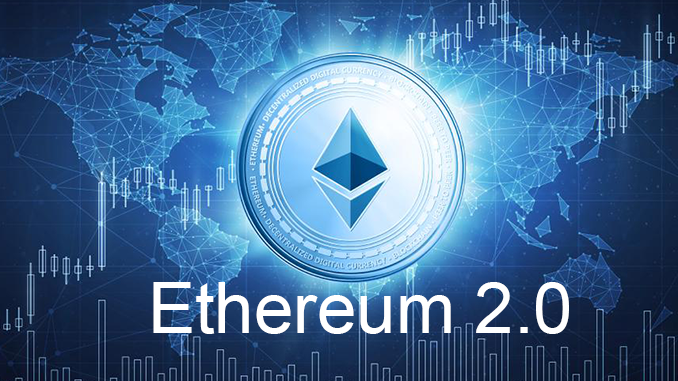
The technological modernisation of Ethereum (ETH), which is linked to great expectations, seems to be coming to a standstill. At least one developer has questioned the data for Ethereum 2.0 in 2020 that had been targeted so far. ETH inventor Vitalik Buterin disagrees and sees the project on schedule.
Ethereum (ETH) as the second largest global crypto currency in terms of market capitalization has a technological need to catch up. This is largely undisputed among experts and investors, and the Ethereum Foundation has been addressing the challenge under the project name Ethereum 2.0 for years. But now, a question and answer session (AMA) at Reddit shows that the Ethereum 2.0 schedule could once again be in trouble. Developer Justin Drake sees several tasks to be solved, some of them security related, and warns to be prepared for dates in early 2021. Vitalik Buterin, the mastermind behind ETH, however, sees the objections as less dramatic and believes that phase 0 of Ethereum 2.0 should start in 2020 as announced.
What is the expert dispute about Ethereum 2.0 about?
With Beacon as a new, second ETH block chain, Ethereum 2.0 should actually enter the practical phase this July. But developer Drake notes that before that, it would need a public test net for two to three months, the simulation of serious attacks on the network and also a minimum two-month phase for rewarded bug hunting (Bug County Program). Only then would it be possible to put Beacon live, and this would not be possible until mid-November 2020 at the earliest. Since then, however, with Thanksgiving, Christmas and New Year many holidays are coming up, Drake said, he considers the Genesis block at Beacon possible for January 3, 2021 at the earliest, which would symbolically pick up the 12th anniversary of Bitcoin.
Drake’s frank words met with immediate opposition, and Ethereum inventor Vitalik Buterin also joined the discussion. He preferred to launch Beacon much earlier, if necessary regardless of the state of completion. When Ethereum 1.0 was developed and released into practice, four months were needed. Buterin summarizes that the steps that are now being taken are partly more complex and partly easier to manage. He therefore sees no compelling reason to wait any longer with Beacon. At Reddit Buterin’s optimism finds predominantly applause, only single voices go with Drake d’accord and do not want to risk a false start.
But the matter is not quite so trivial: It is true that Beacon, as the first phase of Ethereum 2.0, will be separated from ETH-Mainnet and will not integrate important functions like the virtual machine. Beacon is first and foremost intended to prove that Ethereum can switch the protocol from proof-of-work to proof-of-stake and thus achieve higher throughput in the number of transactions with less computing capacity. This is why Beacon is taken very seriously by the cryptoscene and Buterin also admits that mistakes there could damage the image of Ethereum’s entire ecosystem.
Conclusion: Will Ethereum 2.0 become a never ending story?
The annoyance about a possible further delay of Ethereum 2.0 is understandable, as it tends to affect the price development of ETH and the development work of third parties, such as for DApps. On the other hand, Drake’s objections are not bean-counting, but rather a reminder of serious processes when working on upgrades. Ethereum already has a history with the DAO hack and the security problems with the Upgrade Constantinople, which can be sceptical. It is also not the first time that Buterin communicates schedules that are not supported by the developers. We will see who finally asserts himself in the coming months.
Best place to buy Bitcoin and Ethereum:

Leave a Reply